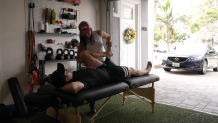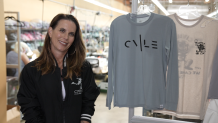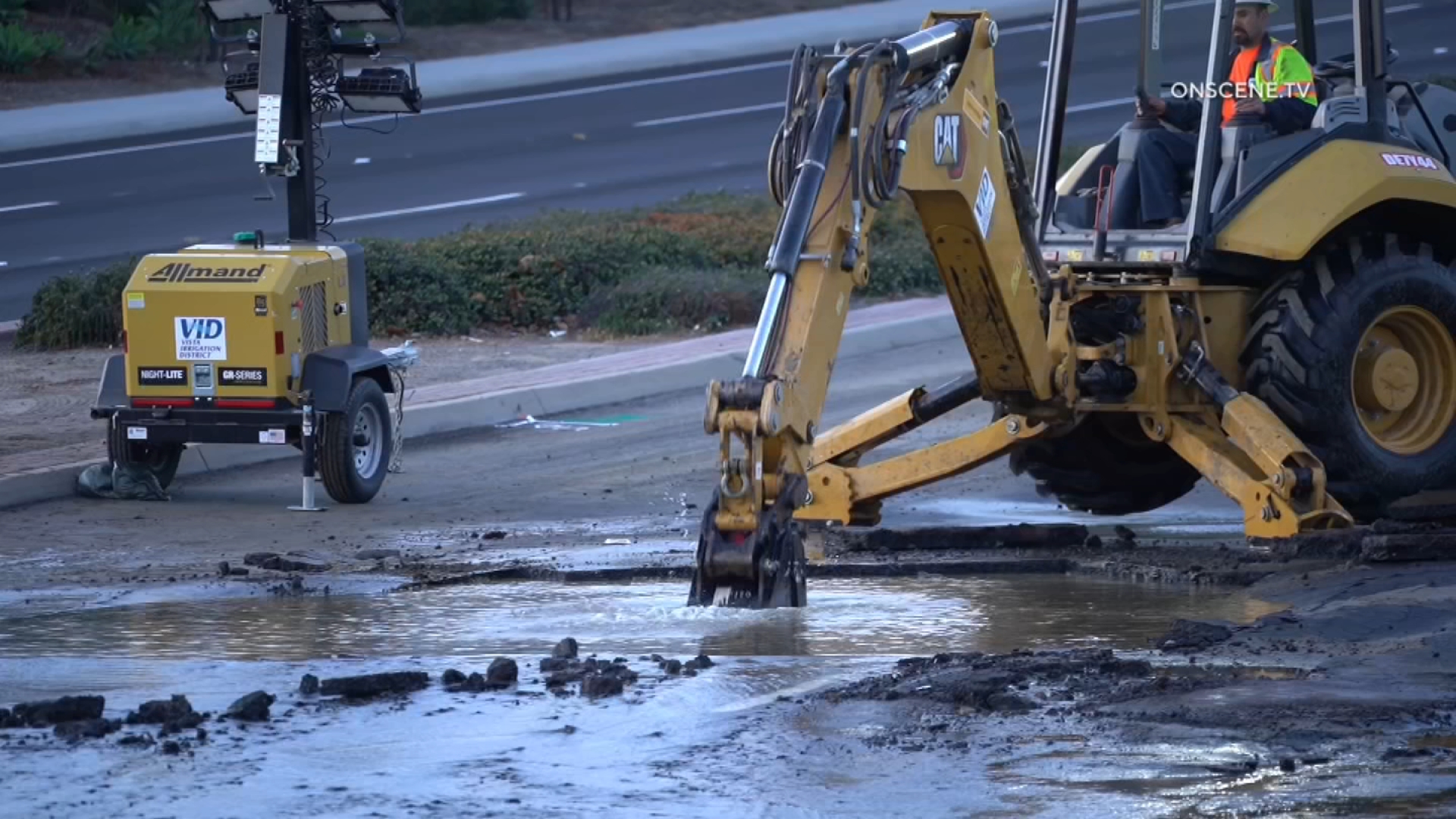It's hard to imagine a sport called "pickleball" could be taken seriously.
As the story goes, it was a game invented in 1965 by a group of Dads on Bainbridge Island, Washington, as a way to cure their kids' boredom. Yet, during the COVID-19 pandemic, the sport skyrocketed in popularity among adults, especially older adults, as a way to get exercise while socially distancing.
...Is this (pickleball) just going to be a fad? Is it going to fade?"
Callan Dawson, Pickleball Pro Athlete
Now, the recreational activity is bouncing in other directions not many would have imagined. Certainly not Callan Dawson of Encinitas when he began playing in 2015.
Get top local stories in San Diego delivered to you every morning. Sign up for NBC San Diego's News Headlines newsletter.
"I was kind of wondering," he said, "Is this just going to be a fad? Is it going to fade, kind of like racquetball did?
Eight years later, Dawson is among a growing group of professional athletes determined to make it a sport to be taken seriously.
He gave up his full-time job as a San Diego City firefighter to play for the two professional pickleball leagues.
The game that some might describe as a combination of tennis and ping pong, played with a paddle and what looks like a whiffle ball, is a physical and mental game and addicting.
"(It's) as if you're playing chess but applying it to the court."
Callan Dawson, Pro pickleball athlete
"It's just very difficult to get really good, and it just really takes a lot of patience and strategy...it not only gets you hooked in a physical aspect, but also in kind of a mental aspect as well, as if you're playing chess but applying it to the court," said Dawson.
The pro athlete plays mens' doubles and is good at his game, hovering in the top 20 with about 96 players on tour. His highest ranking this year was seventh.
His parents Jennifer and Steve Dawson, former tennis pros-turned-pickleball pros own the Bobby Riggs Racket and Paddle Club in Encinitas.
Between father, mother and son, they've amassed a slew of major titles.
On any given day, the pickleball courts -- which were all transformed from tennis courts at the facility -- are full. Reservations are routinely made six days in advance.
Steve Dawson, helps coach his son in a sport he says will eventually become a popular spectator sport.
"Right now the scoring is a little odd. You got these things called kitchen and foot faulting and all these funny little serving violation rules but once the public catches on to what the rules are, I think they'll enjoy watching it," Callan's father said.
Dawson plays one to two tournaments a month. He trains nearly every day of the week, which includes physical therapy to stay in shape.
Brianna Musco is his physical therapist and says pickleball-related injuries are on the rise. Musco whose practice is in Carlsbad says between preventative care and injuries like pickleball elbow and more, it's enough to keep her and her peers busy full-time.

"If I wanted to just post up at the pickleball facilities and be the pickleball PT, I think there is more than enough clientele," said Musco.
The sport has also spawned side businesses like Civile, (pronounced: chee-vee-lay), a Solana Beach clothing line of separates and accessories specifically designed for pickleball players.
Aubri Steele, Civile's founder and CEO said the name of the company reflects their philosophy that came about after the isolation of the pandemic.

"I wanted a name that speaks to bringing people back together..."
Aubri Steele, Founder and CEO, Civile
"I wanted a name that speaks to bringing people back together so Civile means civil in Italian. And I wanted something that acknowledged that pickleball was where we were coming back together again," Steele said.
And the clothes are sewn in San Diego. Steele said she wanted to bring jobs back after the pandemic and keep them local as well.
But the sport is not without growing pains. There is a concerted yet challenging effort to qualify pickleball as an Olympic sport. That's the goal of the International Pickleball Federation, according to Carl Burnett, 1st Vice President.
In addition, Burnett says the industry is growing at such a fast rate there are nowhere near enough courts specifically for pickleball.
In order to satisfy the demand, 25,000 more courts need to be built at a cost of $900 million, according to a recent Sports and Fitness Industry Association study.
"If pickleball is to grow one of the things it must do is it must begin developing its own dedicated court system."
Carl Burnett, 1st Vice President, International Pickleball Federation
"One of the big problems we have with this particular sport is the fact that currently today most courts are being repurposed or used along with tennis courts...If pickleball is to grow one of the things it must do is it must begin developing its own dedicated court system," Burnett.
For Callen Dawson, pickleball is his livelihood, it's his passion. And when it comes to his talent as well as the sport's future there is untapped potential.
And as far as Dawson is concerned, "the sport is here to stay."



